Converting from oil to ??
Emily
9 years ago
Related Stories
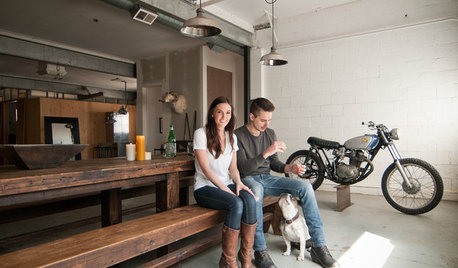
INDUSTRIAL STYLEMy Houzz: From Raw Space to Hip Home in a Converted Utah Garage
Creative repurposing with an industrial edge defines the first home of an engaged couple in Salt Lake City
Full Story
HOUZZ TOURSMy Houzz: When Memories of Home Are of Paint and Linseed Oil
A San Francisco Bay Area artist’s sun-drenched home doubles as her gallery and studio
Full Story
LIVING ROOMSHow to Convert Your Wood-Burning Fireplace
Learn about inserts and other options for switching your fireplace from wood to gas or electric
Full Story
LOFTS5 Innovative Ideas From a Live-Work Space in a Converted Toy Factory
Driven by a tight budget, architects get creative in transforming a couple’s work-focused loft in downtown Los Angeles
Full Story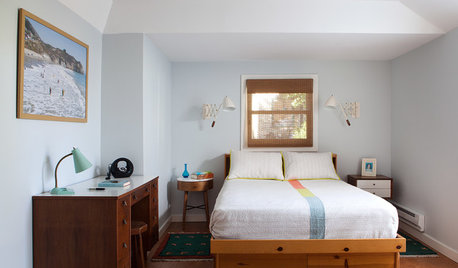
OUTBUILDINGSRoom of the Day: A Converted Garage Grooves Out in California
A designer converts part of her backyard garage into a guest suite that mixes function and fun
Full Story
LOFTSHouzz Tour: Playing Checkers in a Converted London Bakery
Bold black and white flooring and white walls run through this long British flat, setting off clean-lined midcentury-style furniture
Full Story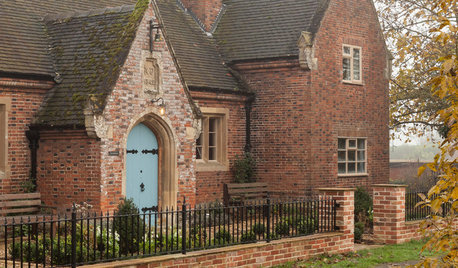
HOUZZ TOURSMy Houzz: Converted Victorian Schoolhouse Looks to the Past
A 19th-century school is transformed into a spacious home with lots of natural light, vintage finds and restored period features
Full Story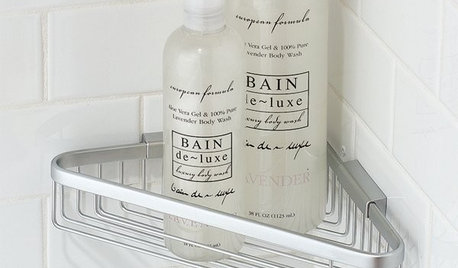
SHOWERSConvert Your Tub Space Into a Shower — Choosing Accessories
Step 5 in swapping your tub for a sleek new shower: Pick the right niches, benches and bars for the best showering experience
Full Story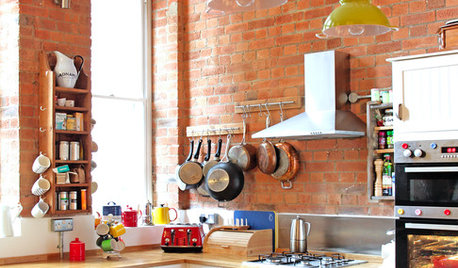
ECLECTIC HOMESHouzz Tour: Family-Friendly Apartment in a Converted School
A reconfigured London home goes from cool couple’s hangout to fun family home
Full Story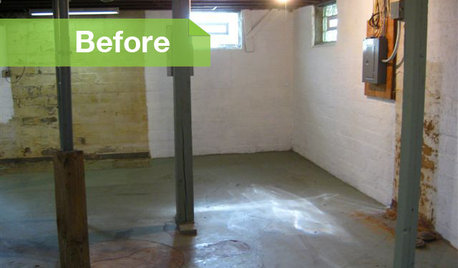
BASEMENTSBasement of the Week: Modern Style Converts an Empty Concrete Box
From raw wasteland to fab living, sleeping and storage space, this snazzy basement now covers all the angles
Full StoryMore Discussions







tigerdunes
EmilyOriginal Author
Related Professionals
Fort Lee Solar Energy Systems · Rehoboth Solar Energy Systems · Tarpon Springs Solar Energy Systems · Waltham Solar Energy Systems · Moraga Solar Energy Systems · Alexandria Home Automation & Home Media · Birmingham Home Automation & Home Media · Farmington Home Automation & Home Media · Ferndale Home Automation & Home Media · Lakeway Home Automation & Home Media · Laurel Home Automation & Home Media · Port Washington Home Automation & Home Media · Deer Park Fireplaces · Lake Ridge Fireplaces · Quincy FireplacesEmilyOriginal Author
tigerdunes
mike_home
ionized_gw
EmilyOriginal Author
tigerdunes
EmilyOriginal Author
tigerdunes
mike_home
ionized_gw
jackfre
berlin
Bruce in Northern Virginia
ionized_gw
tigerdunes
jackfre
EmilyOriginal Author
mike_home
ionized_gw
mike_home
ionized_gw
EmilyOriginal Author